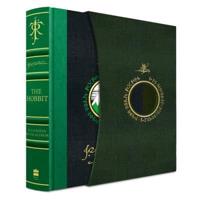Publisher's Synopsis
El hombre sentimental, escrita con un ritmo que se acelera progresivamente hasta un inesperado desenlace, es el libro que, como señaló Juan Benet, dio inicio a una etapa nueva y más ìntima en la obra de Javier Marìas.
&«El hombre sentimental es una historia de amor en la que el amor no se ve ni se vive, sino que se anuncia y recuerda», dice Javier Marìas en su epìlogo. Y se pregunta: &«¿Puede esto ocurrir?».
Un famoso tenor, conocido como el León de Nápoles, es el encargado de contar esa historia sucedida cuatro años atrás, durante una visita a Madrid para ensayar el Otello de Verdi. Los personajes son la misteriosa y melancólica Natalia Manur; su marido, el banquero Manur, y el imperturbable y obsequioso señor Dato, acompañante de profesión. A su alrededor se mueven otros secundarios: una prostituta apresurada, una vieja gloria de la escena operìstica, un minucioso viudo, un antiguo amor.
Es esta una novela sobre pasiones llevadas hasta las últimas consecuencias, que en los tiempos que corren sólo son verdaderamente últimas para el hombre sentimental, que parece ser el artista o el pensador, pero que tal vez sea, por el contrario, el hombre de negocios, el hombre de acción.
En este libro, que contiene una declaración de amor gravemente encendida, el autor no ha renunciado a la ironìa, a la leve burla implìcita de sus héroes, a los que no puede evitar tomarse muy en serio y algo a broma al mismo tiempo, mientras el ritmo se acelera progresivamente hasta un inesperado desenlace.
El hombre sentimental fue galardonada en 2000 con el Premio Internazionale Ennio Flaiano de Novela.
ENGLISH DESCRIPTION
Marìas's riveting novel about an opera singer and an extramarital affair.
Glinting like a moonstone with layers of emotion, The Man of Feeling is a sleek and strange tale of cosmopolitan love. An affair between a married woman and a young man just becoming an opera star (curiously helped along by the husband's factotum) meets with adamant resistance from the implacable husband.
Narrated by the young opera singer, the novel opens as he recalls traveling on a train from Milan to Venice, silently absorbed for hours by the woman asleep opposite his seat. In the measured tones of memory, The Man of Feeling revolves on the poles of anticipation and recollection. The peculiar rarified life lived in the world's luxury hotels, a life of rehearsal and performance, the constant travel and ghost-like detachment of our protagonist adds a deeper tone to the novel's weave of desire and detachment, of consideration and reconsideration: its epigraph cites William Hazlitt: "I think myself into love,/And I dream myself out of it."
As Marìas remarks in a brief afterword, this is a love story "in which love is neither seen nor experienced, but announced and remembered." Can love be recalled truly when it no longer exists? That twist will continue to revolve in the reader's mind, conjuring up in its disembodied way Henry James' The Turn of the Screw. Beautifully translated into English for the first time by Margaret Jull Costa, this fascinating and eerie early novel by Javier Marìas bears out his reputation for the "dazzling" (TLS) and "startling" (The New York Times).








